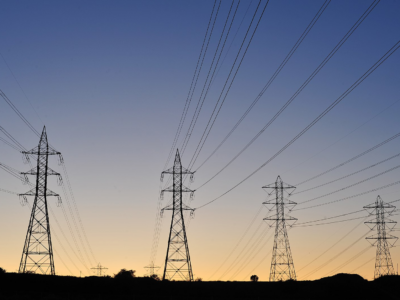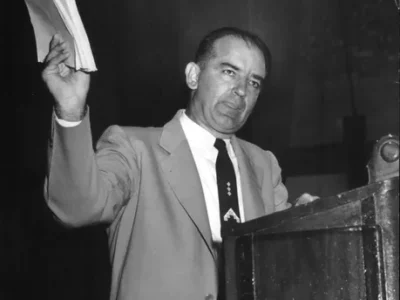Elections Matter – Even More Than You Thought.
Three ultra-close elections put us a dozen years behind in climate policy.
I don’t know about you, but I’m finding it hard to keep focused on November 3, 2020, given the confusing welter of candidates on one side and the daily bombshells issuing from the other. So maybe this is a good time for a reminder of a why elections matter. In fact, they not only matter, but their repercussions can last decades past any individual presidency.
Three elections in this century, each decided by close margins in a handful of states, froze progress on climate policy for years on end. The resulting carbon emissions not only add to global warming today. They will also remain in the atmosphere for two to three hundred years, a legacy from voters to our descendants.
In 2000, George Bush won Florida by a margin of 547 votes out of six million – a margin of less than one in ten thousand votes While campaigning, Bush had pledged to cap carbon dioxide emissions and require power plants to reduce greenhouse gas . Christine Whitman, who he appointed to head EPA, repeated that pledge at an international meeting in Italy. But Bush repudiated his campaign pledge, and Whitman was soon forced out. Bush spent the rest of his presidency resisting every attempt to address climate change.
Bush’s opponent in 2000 was a long-standing champion of environmental protection. Al Gore had written a book forcefully advocating an environmental Marshall Plan, an early foreshadowing of later calls for a Green New Deal. He had been actively involved in international climate negotiations, up to and including the Kyoto Agreement. If fewer than six hundred votes in Florida had shifted, it is very likely that the climate change regulations later adopted under President Obama would have come more than a decade earlier in a Gore presidency.
Bush won reelection in 2004 by winning 51.8% of the vote in Ohio. His opponent, John Kerry, argued in the 2004 campaign for the U.S. to resume its role in international negotiations and to match emissions cuts from other developed countries. If Kerry had won Ohio, the Paris Agreement might have come in 2006 instead of 2016. Moreover, U.S. climate regulators would be facing much different litigation risks. Instead of Chief Justice Roberts and Justice Alito, both appointed by Bush in his second term, we would have had a liberal Chief Justice and Associate Justice who would be more inclined to uphold environmental regulation.
Despite losing the popular vote, Donald Trump became President by winning Michigan, Pennsylvania, and Wisconsin by a total of 70,000 votes. If Hillary Clinton had picked up one percent of the vote in each of those states, she would have carried the electoral college. In her campaign, she had called climate change an “urgent threat and a defining challenge of our time,” one that “threatens our economy, our national security, and our children’s health and futures. “ She vowed to make the U.S. “the world’s clean energy superpower and creating millions of good-paying jobs, taking bold steps to slash carbon pollution at home and around the world, and ensuring no Americans are left out or left behind as we rapidly build a clean energy economy.” In contrast, Trump promised to abandon the Paris Agreement, undo Obama’s climate change efforts, and ramp up production of coal and oil. If Clinton had won, she would have had the opportunity to fill Justice Scalia’s empty chair, giving the Supreme Court a liberal majority for the first time in decades. Rather than facing an uphill battle in the Supreme Court, measures like Obama’s Clean Power Plan would have faced a much more sympathetic bench.
But these possibilities were not to be. As a result, we have lost a dozen years to inaction at the very time when climate action would have had the best chance of keeping carbon levels below the danger point. These lost possibilities bring home with brutal force the validity of two truism. Elections do matter. And given the closeness of these critical elections, every vote really does count – not just for us today, but for the welfare of future generations.
If we had started in 2000 to get our act together, there would be millions of tons less carbon in the atmosphere. Some of that carbon will still be there in 2200 as a monument to the razor-thin defeats of Al Gore and Hillary Clinton. Every vote not only counts, it can be measured in tons of carbon.
Reader Comments
2 Replies to “Elections Matter – Even More Than You Thought.”
Comments are closed.







It’s a sad state of affairs, but a poignant reflection that needs to be shared to awaken young voters. I’m sharing this with my own sons, and other young voters too. If in a later post you have thoughts on which candidate is the best on climate change from the welter of them, it would be an appreciated follow up.
And if the dems had picked better candidates, we would not have lost 20 years. The blame is squarely on the DNC leadership.